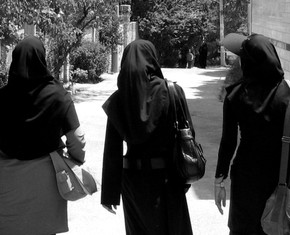The views expressed in our content reflect individual perspectives and do not represent the authoritative views of the Baha'i Faith.
The world of economics is based on profit. Without it, there would be no motivation to start a business or company—the whole system would fail.
After all, why would anyone exert so much effort for no profit? Sure, there are a few people who work for free, but their motivation is not to earn a livelihood. In today’s world, competition has become so stiff that most companies employ consultants, research firms, agencies and even psychologists to guide them to increase their profits.
That’s all well and good—but with the pressures in this materialistic world, the desire for profit can easily get out of hand and devolve into greed. When that happens, those in business want more and more and, in order to get more, they lose their sense of reality and forget to ask themselves this question: “How much is enough?”
Most entrepreneurs and business owners can recall when they started their business how little they expected as a return on their investment. But sadly, as their businesses grew, their greed often grew with it, to the point that there was no limit to their desire for more profit. Unfortunately, as greed increases, it overshadows many of our human values and morals.
The Baha’i teachings recognize the concept of greed in a unique manner:
In the innate nature of things there is no evil—all is good. This applies even to certain apparently blameworthy attributes and dispositions which seem inherent in some people, but which are not in reality reprehensible. For example, you can see in a nursing child, from the beginning of its life, the signs of greed, of anger, and of ill temper; and so it might be argued that good and evil are innate in the reality of man, and that this is contrary to the pure goodness of the innate nature and of creation. The answer is that greed, which is to demand ever more, is a praiseworthy quality provided that it is displayed under the right circumstances. Thus, should a person show greed in acquiring science and knowledge, or in the exercise of compassion, high-mindedness, and justice, this would be most praiseworthy. And should he direct his anger and wrath against the bloodthirsty tyrants who are like ferocious beasts, this too would be most praiseworthy. But should he display these qualities under other conditions, this would be deserving of blame. – Abdu’l-Baha, Some Answered Questions, newly revised edition, pp. 248-249.
Baha’u’llah warns us not to waste our lives on those blameworthy aspects of greed:
Why, then, exhibit such greed in amassing the treasures of the earth, when your days are numbered and your chance is well-nigh lost? Will ye not, then, O heedless ones, shake off your slumber? – Baha’u’llah, Gleanings from the Writings of Baha’u’llah, p. 127.
These Baha’i teachings clearly demonstrate how dangerous greed can be, and how important it is to be aware of this danger and combat it. This task becomes more significant because where there is greed there is also envy—these two are closely related. To combat them, we need to increase our awareness by drawing strength from the spiritual teachings of the world’s great Faiths.
What’s the opposite of greed? Contentment. The Oxford dictionary definition of contentment is “a state of happiness and satisfaction.” When you’re content, you evince a mental or emotional state of satisfaction with life—you’re at ease in your situation, your body, your mind and your soul.
A contented life is characterized by thanksgiving for what we have, rather than moaning about what we don’t have, or what the advertisements or a comparison to our neighbors tell us we ought to have. Contentment directs our attention towards gratitude for what we have. If you have a house, a car or a business, be happy that you have them—since there are millions who dream of having them. If you have a business and it is providing you with sufficient profit to live a comfortable life, be happy with that, rather than thinking you need more profit and more things. No matter how many possessions you accumulate or how much profit you make, if you are not satisfied with them, then your efforts will not give you peace of mind or peace in your heart:
Contentment is real wealth. If one develops within himself the quality of contentment he will become independent. Contentment is the creator of happiness. When one is contented he does not care either for riches or poverty. He lives above the influence of them and is indifferent to them. – Abdu’l-Baha, quoted in the diary of Ahmad Sohrab, Star of the West, Volume 5, p. 17.
Be content with what you have; rejoice in the way things are. When you realize there is nothing lacking, the whole world belongs to you. – Lao Tzu, Tao Te Ching, Ch. 44.
So if you run a business, be content with a reasonable margin of profit. Being satisfied with earning a profit that is just enough will create a sense of contentment and provide an example to others. It will also gradually increase the volume of your business, because those who are satisfied with a lower profit margin typically can offer lower prices.
It takes great strength and inner conviction to be satisfied and content with a set amount of profit—but doing so leads to a peaceful heart, and the heavenly feeling of contentment that greed can never offer.
















Comments
Sign in or create an account
Continue with Googleor